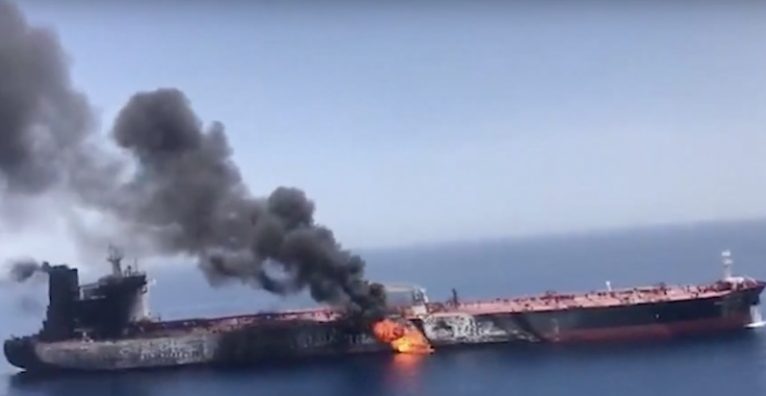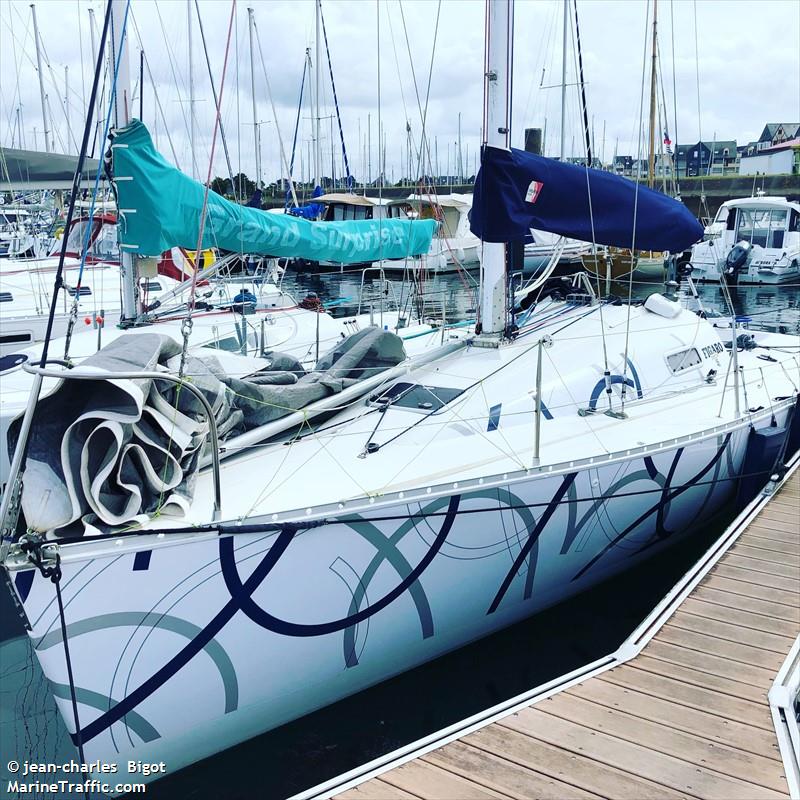Seafarers on edge following latest Middle Eastern tanker attacks

Seafarers face an anxious few months ahead transiting the Strait of Hormuz, a kew Middle Eastern waterway where vast volumes of oil are moved through, in the wake of Thursday’s attacks on two tankers, 32 days after four other tankers were also targeted in the same area.
Shipping lines are taking evasive action in the wake of yesterday’s explosive attacks on a Frontline LR2 tanker and a chemical tanker belonging to Japan’s Kokuka Sangyo and managed by Bernhard Schulte.
The latest information shows there were three explosions on Frontline’s Front Altair (pictured), according to the Norwegian Maritime Agency with the master of the Hyundai Dubai general cargo ship, which came to rescue the crew, saying the ship had been hit by torpedoes.
John Fredriksen’s Frontline said on Thursday that a fire broke out after an explosion and that the cause of the blast was unclear.
Meanwhile, the chemical tanker, Kokura Courageous was attacked twice in a similar location to the Front Altair “with some sort of shell”, the ship’s co-manager Michio Yuube said. The two attacks took place three hours apart.
Yutaka Katada, the president of Kokuka Sangyo, said on Japanese TV: “The shell hit a section close to the engine. It pierced through the outer panel and it came close to the iron plate of the engine room, creating sparks, which then caused a fire.”
The United States secretary of state, Mike Pompeo, said Thursday that America believes Iran is responsible for the attacks. The US also said earlier that Iran was behind the limpet mine attacks on four tankers off Fujairah on May 12. Iran has denied it was involved.
Splash understands that on Thursday two Iranian navy ships squared off to a US destroyer as naval tensions in the region ratcheted up to levels not seen for a generation.
Shipping bodies from across the world urged for a quick cessation to the heightened security fears in the region.
Angus Frew, BIMCO secretary general, said: “It is unacceptable that the lives of innocent seafarers are put at risk in these unprovoked attacks.”
BIMCO’s head of maritime security, Jakob Larsen, warned Thursday that the key energy waterway, Hormuz, was now close to war conditions.
“The increase in attacks and the escalated threat to seafarers is an urgent concern to the industry. Following the two most recent attacks, and while we await the results of the investigations of the attacks, the tension in the Strait of Hormuz and the Persian Gulf is now as high as it gets without being an actual armed conflict,” Larsen said.
The Strait of Hormuz provides the only sea passage from the Persian Gulf to the open ocean. Analysts at Alphatanker pointed out on Thursday that at any one time, around 7% of the global tanker fleet of 34,000 dwt or above is located within the Middle East Gulf.
Guy Platten, secretary general of the International Chamber of Shipping, echoed BIMCO comments on Thursday, voicing concern for seafarers who have to work in Middle Eastern waters.
“This is the second incident in one month and the shipping industry, and most importantly the crews, must not be exposed to such risks,” Platten said.
Paolo d’Amico, chairman of tanker body INTERTANKO, said in a statement: “Following two attacks on member vessels this morning, I am extremely worried about the safety of our crews going through the Strait of Hormuz.”
International Maritime Organization secretary-general Kitack Lim condemned the attacks and said the UN body might have to take further action to ensure merchant shipping is not subjected to similar incidents.
“These suspected attacks, coupled with the attacks in the UAE last month, concern me greatly. IMO has developed a comprehensive regime of regulation through the ISPS Code and the SUA Conventions and Protocols to prevent and respond to unprovoked, unlawful attacks on merchant shipping. The threat to ships and their crews, peaceably going about their business, is intolerable,” Lim said, adding that he would review the results of the investigations to consider if additional IMO action is warranted.
Splash will be carrying regular updates from the Persian Gulf all week.

 (pictured), according to the Norwegian Maritime Agency with the master of the Hyundai Dubai general cargo ship, which came to rescue the crew, saying the ship had been hit by torpedoes.
(pictured), according to the Norwegian Maritime Agency with the master of the Hyundai Dubai general cargo ship, which came to rescue the crew, saying the ship had been hit by torpedoes.